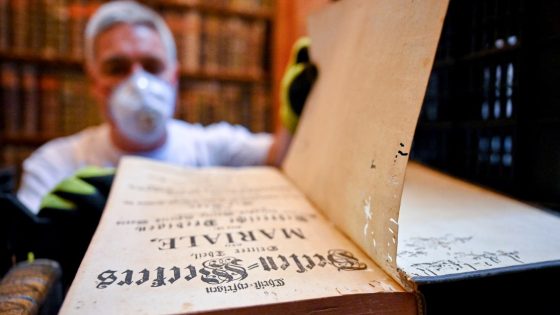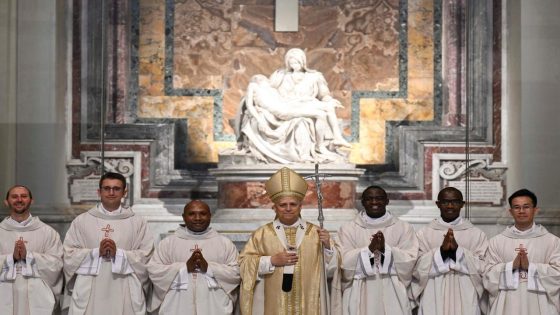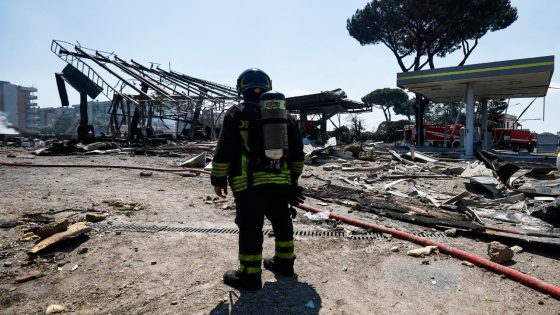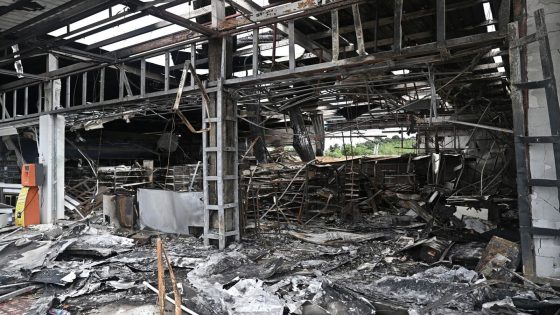The Pannonhalma Archabbey in Hungary, founded in 996, is facing a significant challenge as it battles a beetle infestation threatening its invaluable library collection. This abbey, a cultural and religious landmark for over a millennium, houses the oldest collection of books in Hungary and holds immense historical significance. As of July 3, 2025, the abbey is taking proactive measures to preserve its treasures while addressing the impact of climate change on its environment.
- Pannonhalma Abbey founded in 996.
- Houses Hungary's oldest book collection.
- Beetle infestation threatens cultural heritage.
- Library employs oxygen-free treatment for books.
- Climate change linked to increased pest issues.
- Preservation follows centuries-old Benedictine rules.
Ilona Ásványi, director of the abbey’s library, expressed her deep sense of responsibility for the collection, stating that damage to any book represents a loss of cultural heritage. The library contains rare manuscripts and codices, including a complete Bible from the 13th century, making its preservation crucial for future generations.
This situation raises an important question: how can we better protect our historical sites from the effects of climate change? The Pannonhalma Archabbey’s response underscores the necessity of proactive conservation efforts in light of rising global temperatures. Key points include:
- Climate change is exacerbating pest infestations in cultural sites.
- Historical collections are irreplaceable and require immediate action.
- Preservation efforts reflect a commitment to cultural heritage.
As we look to the future, it is imperative that we prioritize the preservation of our cultural treasures, ensuring they endure for generations to come. What steps will you take to support cultural heritage in your community?































